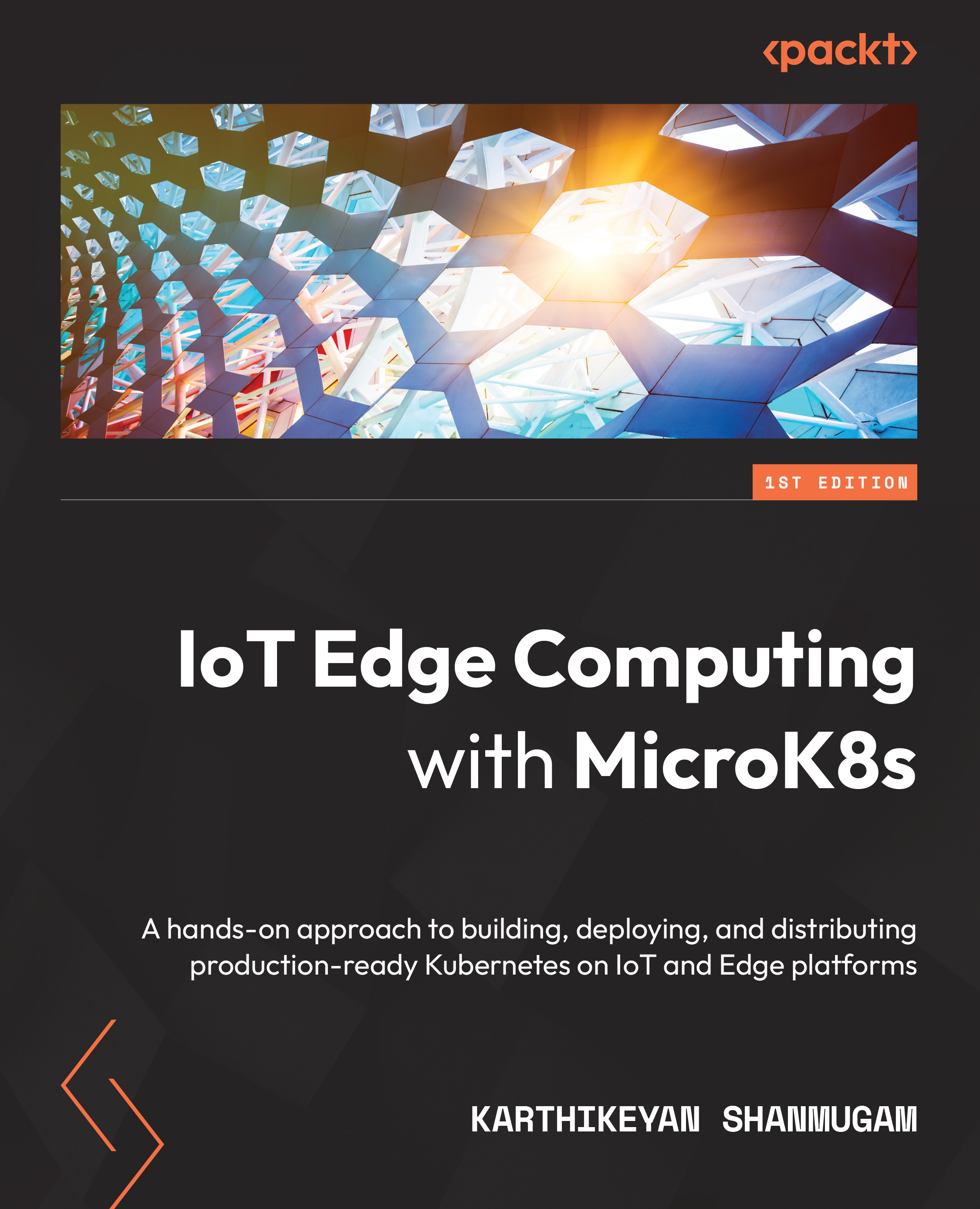-
Book Overview & Buying

-
Table Of Contents

IoT Edge Computing with MicroK8s
By :

IoT Edge Computing with MicroK8s
By:
Overview of this book
Are you facing challenges with developing, deploying, monitoring, clustering, storing, securing, and managing Kubernetes in production environments as you're not familiar with infrastructure technologies? MicroK8s - a zero-ops, lightweight, and CNCF-compliant Kubernetes with a small footprint is the apt solution for you.
This book gets you up and running with production-grade, highly available (HA) Kubernetes clusters on MicroK8s using best practices and examples based on IoT and edge computing.
Beginning with an introduction to Kubernetes, MicroK8s, and IoT and edge computing architectures, this book shows you how to install, deploy sample apps, and enable add-ons (like DNS and dashboard) on the MicroK8s platform. You’ll work with multi-node Kubernetes clusters on Raspberry Pi and networking plugins (such as Calico and Cilium) and implement service mesh, load balancing with MetalLB and Ingress, and AI/ML workloads on MicroK8s. You’ll also understand how to secure containers, monitor infrastructure and apps with Prometheus, Grafana, and the ELK stack, manage storage replication with OpenEBS, resist component failure using a HA cluster, and more, as well as take a sneak peek into future trends.
By the end of this book, you’ll be able to use MicroK8 to build and implement scenarios for IoT and edge computing workloads in a production environment.
Table of Contents (24 chapters)
Preface
Part 1: Foundations of Kubernetes and MicroK8s
 Free Chapter
Free Chapter
Chapter 1: Getting Started with Kubernetes
Chapter 2: Introducing MicroK8s
Part 2: Kubernetes as the Preferred Platform for IoT and Edge Computing
Chapter 3: Essentials of IoT and Edge Computing
Chapter 4: Handling the Kubernetes Platform for IoT and Edge Computing
Part 3: Running Applications on MicroK8s
Chapter 5: Creating and Implementing Updates on a Multi-Node Raspberry Pi Kubernetes Clusters
Chapter 6: Configuring Connectivity for Containers
Chapter 7: Setting Up MetalLB and Ingress for Load Balancing
Chapter 8: Monitoring the Health of Infrastructure and Applications
Chapter 9: Using Kubeflow to Run AI/MLOps Workloads
Chapter 10: Going Serverless with Knative and OpenFaaS Frameworks
Part 4: Deploying and Managing Applications on MicroK8s
Chapter 11: Managing Storage Replication with OpenEBS
Chapter 12: Implementing Service Mesh for Cross-Cutting Concerns
Chapter 13: Resisting Component Failure Using HA Clusters
Chapter 14: Hardware Virtualization for Securing Containers
Chapter 15: Implementing Strict Confinement for Isolated Containers
Chapter 16: Diving into the Future
Frequently Asked Questions About MicroK8s
Index
Other Books You May Enjoy
